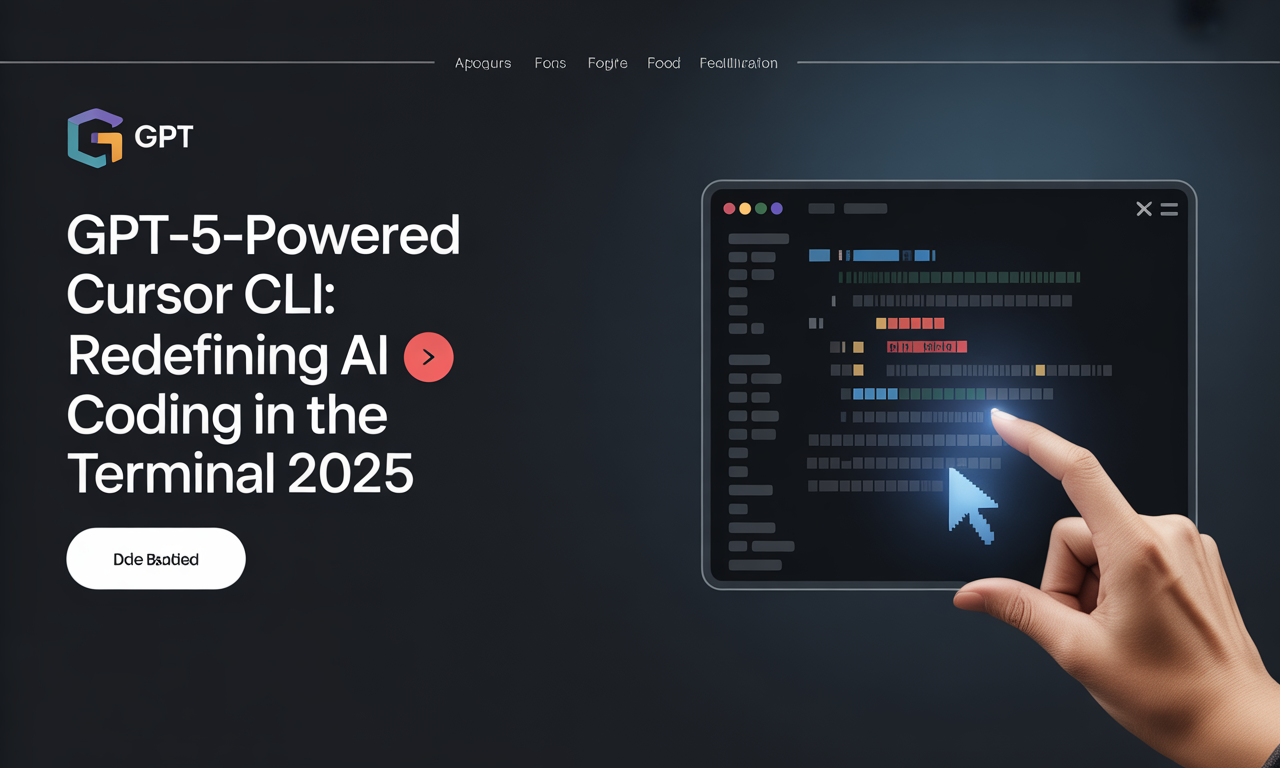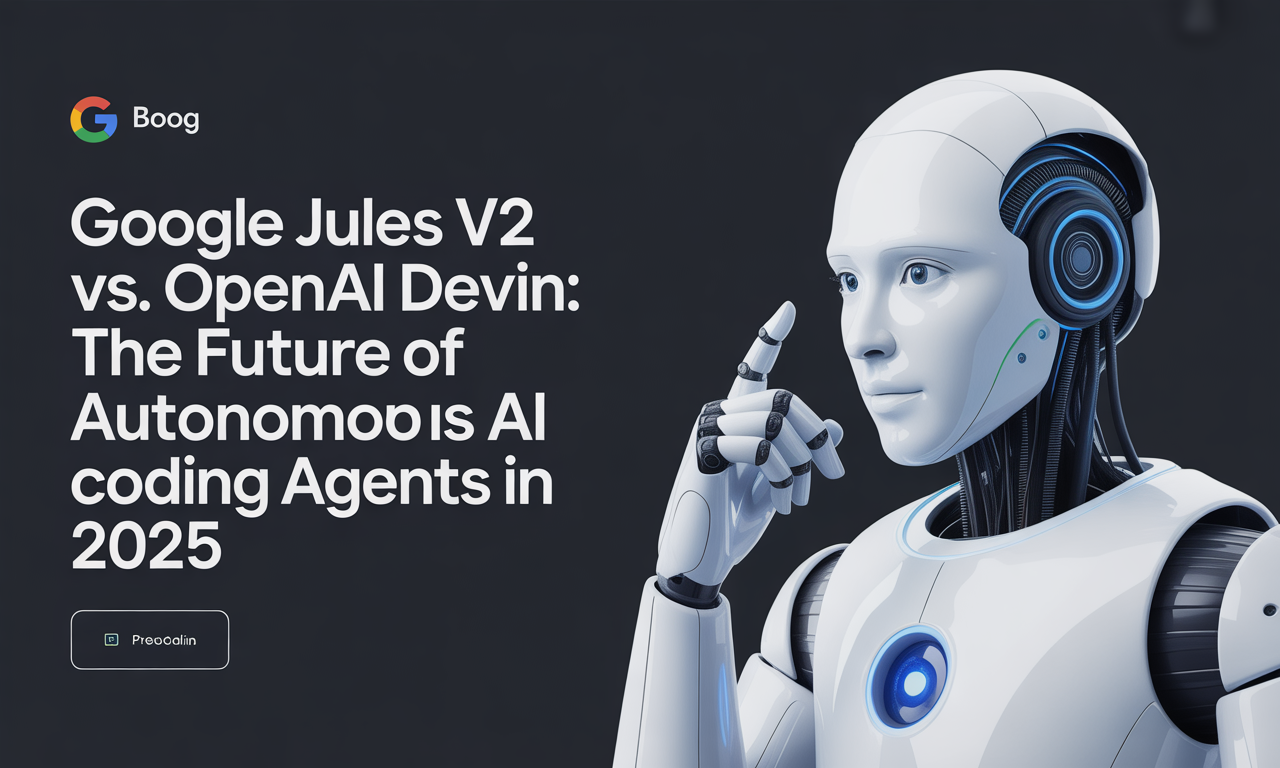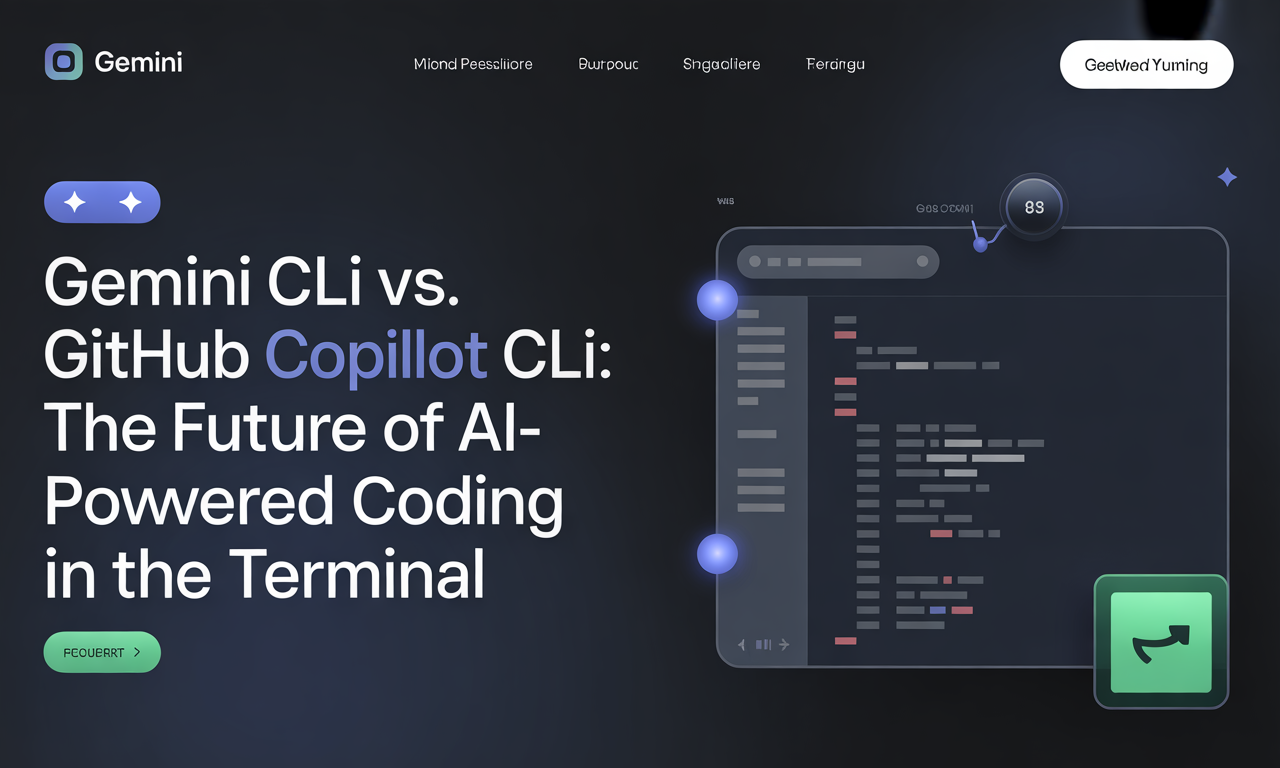GPT-5-Powered Cursor CLI: Redefining AI Coding in the Terminal for 2025
The future of software development is here, and it’s unfolding right inside your terminal. The GPT-5-powered Cursor CLI is revolutionizing how developers write, review, and deploy code by harnessing the latest in AI technology directly within command-line environments. As we move deeper into 2025, this powerful tool is reshaping productivity, precision, and automation for coders working on MacOS, Linux, and Windows Subsystem for Linux (WSL). Whether you're a solo developer or part of a large team managing complex projects, Cursor CLI is setting a new standard for AI-assisted coding workflows.
In this comprehensive guide, we’ll explore what makes the GPT-5-powered Cursor CLI a game-changer, how it integrates into developer workflows, and practical tips to get the most out of this cutting-edge tool.
What is the GPT-5-Powered Cursor CLI?
At its core, Cursor CLI is a command-line interface that brings the immense capabilities of GPT-5 and other advanced AI models like Claude, Gemini, and Grok directly to your terminal. Unlike traditional AI coding assistants that rely on graphical interfaces or web applications, Cursor CLI empowers developers to interact with AI seamlessly as part of their natural coding environment.
Key Highlights
- Terminal-native AI interaction: No need to switch contexts or open new windows. Issue commands, ask for code reviews, generate APIs, or debug—all from your shell.
- Multi-model flexibility: Switch between GPT-5, Claude 4, Gemini 2.5, or Grok depending on your task requirements.
- Automation of entire workflows: From code generation to deployment, documentation, and security audits, Cursor CLI automates multiple stages of the software lifecycle.
- Granular control: Real-time AI steering, configurable agents, and custom rule sets allow developers to tailor the AI’s behavior to their coding style and project needs.
Why GPT-5 in Cursor CLI is a Developer’s Best Friend in 2025
GPT-5 represents a substantial leap forward in AI’s ability to understand, reason, and work with complex codebases. Paired with Cursor CLI, it delivers a unique blend of precision, safety, and scalability.
Enhanced Reasoning & Context Management
One of GPT-5’s standout features is its ability to retain context over large codebases and multi-step tasks. This means:
- Consistent changes across files: Instead of isolated edits, GPT-5 understands project-wide dependencies and applies updates cohesively.
- Improved planning: AI can break down complex development tasks into actionable steps without constant prompting.
- Better multi-turn interactions: Developers can guide the AI through iterative refinement directly in the terminal.
Precision, Safety, and Cost Efficiency
GPT-5 generates more reliable, bug-resistant code that aligns closely with user instructions, making it ideal for maintaining mission-critical systems. Additionally:
- It tends to be more conservative, reducing risky or speculative architectural changes unless explicitly requested.
- API usage costs have dropped significantly, with pricing around $1.25 per million input tokens, making advanced AI coding accessible to a wider developer base.
Strengths vs. Limitations at a Glance
| Strengths | Limitations |
|---|---|
| Highly precise, safer, and more consistent code | Less creative, more conservative |
| Handles large, complex codebases with global consistency | Reluctant to rethink architectures |
| Fewer bugs, better at following instructions | Needs explicit prompts for innovation |
| Superior context management and planning |
How Cursor CLI Transforms Your Coding Workflow
The GPT-5-powered Cursor CLI isn’t just about code generation—it’s a comprehensive platform that automates and optimizes your entire development pipeline.
Typical Workflow Example
- API Design & Code Generation
- Use Cursor CLI to ask GPT-5 to design APIs or generate server-side code snippets.
- Example command:
cursor-agent chat "generate REST API for user authentication"
- Automated Testing & Mock Servers
- Integrate tools like Apidog to validate generated APIs, run automated tests, and create mock servers.
- Continuous Integration & Deployment (CI/CD)
- Automate build scripts, run security audits, and deploy applications—all orchestrated via terminal commands.
- Documentation & Code Reviews
- Generate and update documentation automatically.
- Trigger AI-powered code reviews to catch bugs or security vulnerabilities before merging.
Real-Time AI Steering & Customization
Cursor CLI supports advanced configurations through files such as AGENTS.md and MCP files, enabling:
- Custom AI behavior rules per project.
- Real-time adjustments to AI focus during sessions.
- Creation of specialized coding agents tailored to unique workflows.
This level of customization ensures the AI works with you, not just for you.
Getting Started with GPT-5-Powered Cursor CLI
Ready to harness the power of GPT-5 in your terminal? Follow these simple steps to install and start using Cursor CLI.
Installation
Open your terminal and run:
curl https://cursor.com/install -fsS | bash
This script sets up the CLI tool on MacOS, Linux, or WSL environments.
Basic Usage Example
Once installed, you can prompt the AI to analyze and fix your code with a simple command:
cursor-agent chat "find one bug and fix it"
This command triggers GPT-5 to inspect your current codebase, identify a bug, and propose a fix—all from your terminal window.
Tips for Effective Use
- Start with clear, concise prompts: Precise instructions yield better AI responses.
- Leverage model switching: Use GPT-5 for complex reasoning; switch to Gemini or Claude for specialized tasks.
- Customize agents for repetitive tasks: Automate common workflows like code linting or security scanning using custom agent configurations.
- Combine with existing tools: Integrate Cursor CLI with your CI/CD pipelines, testing suites, and documentation generators.
Real-World Impact: How Developers Are Benefiting in 2025
Early adopters of GPT-5-powered Cursor CLI report significant improvements in productivity and code quality.
Replacing Other AI Tools
Many developers have switched from tools like Claude Code due to GPT-5’s superior planning, context retention, and cost efficiency.
Building Complex Applications
Live demos have showcased GPT-5 building sophisticated apps from scratch, such as a "Tinder for GitHub Issues" that matches developers with issues they can fix—demonstrating the AI’s ability to handle intricate workflows end-to-end.
Streamlining Collaboration
Cursor CLI’s terminal-first approach fits naturally into developer workflows, reducing context switching and enabling faster iteration cycles in team environments.
Conclusion: Embrace the Future of Terminal Coding with GPT-5-Powered Cursor CLI
As software projects grow more complex, the tools we use must evolve. The GPT-5-powered Cursor CLI represents a bold step forward, merging the power of advanced AI with the familiar command-line interface developers love.
Actionable Takeaways
- Integrate Cursor CLI early: Start using it alongside your current workflow to identify automation opportunities.
- Experiment with multi-model setups: Tailor the AI model to your task for maximum efficiency and accuracy.
- Customize agent behaviors: Use configuration files to create AI assistants that match your coding style and project needs.
- Automate repetitive tasks: Free up time for creative problem-solving by automating documentation, testing, and deployment through the CLI.
- Stay updated: As AI models evolve, keep your Cursor CLI and agents updated to leverage the latest improvements.
The GPT-5-powered Cursor CLI is not just a tool—it’s a new paradigm for coding in 2025. By embedding AI directly in the terminal, it empowers developers to write cleaner code, automate tedious tasks, and scale their workflows like never before. If you’re serious about staying ahead in software development, adopting GPT-5-powered Cursor CLI is a strategic move you can’t afford to miss.



